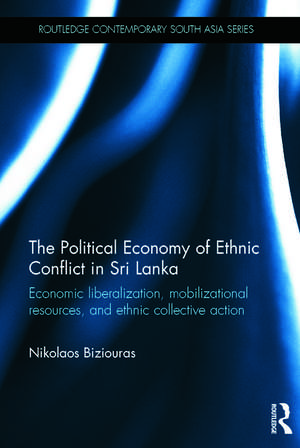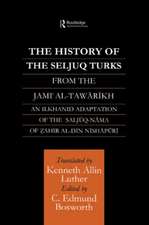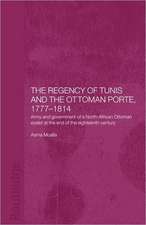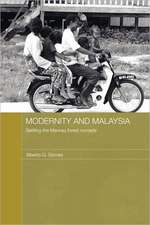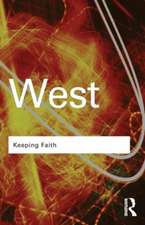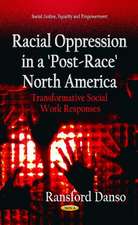The Political Economy of Ethnic Conflict in Sri Lanka: Economic Liberalization, Mobilizational Resources, and Ethnic Collective Action: Routledge Contemporary South Asia Series
Autor Nikolaos Biziourasen Limba Engleză Hardback – 24 mar 2014
With a focus on Sri Lanka, this book explores the political economy of ethnic conflict, and examines how rival political leaders are able to convince their ethnic group members to follow them into violent conflict. Specifically, it looks at how political leaders can influence and utilize changes in the level of economic liberalization in order to mobilize members of a certain ethnic group, and in the case of Sri Lanka, shows how ethnic mobilization drives can turn violent when minority ethnic groups are economically marginalized by the decisions that the majority ethnic group leaders make in order to stay in power.
Taking a political economy approach to the conflict in Sri Lanka, this book is unique in its historical analysis and provides a longitudinal view of the evolution of both Tamil and Sinhalese ethnic drives. As such, this interdisciplinary study will be of interest to policy makers as well as academics in the field of South Asian studies, political science, sociology, development studies, political economy and security studies.
Din seria Routledge Contemporary South Asia Series
-
 Preț: 393.91 lei
Preț: 393.91 lei -
 Preț: 310.08 lei
Preț: 310.08 lei - 8%
 Preț: 389.84 lei
Preț: 389.84 lei -
 Preț: 304.19 lei
Preț: 304.19 lei -
 Preț: 316.71 lei
Preț: 316.71 lei -
 Preț: 328.88 lei
Preț: 328.88 lei -
 Preț: 349.03 lei
Preț: 349.03 lei - 9%
 Preț: 1035.78 lei
Preț: 1035.78 lei - 18%
 Preț: 1056.00 lei
Preț: 1056.00 lei - 28%
 Preț: 848.40 lei
Preț: 848.40 lei - 18%
 Preț: 1059.48 lei
Preț: 1059.48 lei - 18%
 Preț: 1063.41 lei
Preț: 1063.41 lei - 18%
 Preț: 1060.87 lei
Preț: 1060.87 lei - 18%
 Preț: 1057.26 lei
Preț: 1057.26 lei - 18%
 Preț: 1057.75 lei
Preț: 1057.75 lei - 18%
 Preț: 1061.93 lei
Preț: 1061.93 lei - 18%
 Preț: 1057.05 lei
Preț: 1057.05 lei - 18%
 Preț: 1062.98 lei
Preț: 1062.98 lei - 18%
 Preț: 1049.21 lei
Preț: 1049.21 lei - 18%
 Preț: 1058.79 lei
Preț: 1058.79 lei - 18%
 Preț: 1057.09 lei
Preț: 1057.09 lei - 18%
 Preț: 705.87 lei
Preț: 705.87 lei - 18%
 Preț: 1054.97 lei
Preț: 1054.97 lei - 18%
 Preț: 1109.42 lei
Preț: 1109.42 lei - 28%
 Preț: 823.63 lei
Preț: 823.63 lei - 18%
 Preț: 1169.78 lei
Preț: 1169.78 lei - 30%
 Preț: 846.42 lei
Preț: 846.42 lei - 18%
 Preț: 1054.71 lei
Preț: 1054.71 lei - 18%
 Preț: 1057.75 lei
Preț: 1057.75 lei - 18%
 Preț: 1062.98 lei
Preț: 1062.98 lei - 28%
 Preț: 822.36 lei
Preț: 822.36 lei - 28%
 Preț: 848.15 lei
Preț: 848.15 lei - 18%
 Preț: 1053.92 lei
Preț: 1053.92 lei - 18%
 Preț: 698.58 lei
Preț: 698.58 lei - 18%
 Preț: 1058.79 lei
Preț: 1058.79 lei - 18%
 Preț: 1062.98 lei
Preț: 1062.98 lei - 18%
 Preț: 1057.75 lei
Preț: 1057.75 lei - 18%
 Preț: 1060.87 lei
Preț: 1060.87 lei - 18%
 Preț: 1057.40 lei
Preț: 1057.40 lei - 18%
 Preț: 1057.13 lei
Preț: 1057.13 lei - 18%
 Preț: 1165.87 lei
Preț: 1165.87 lei - 25%
 Preț: 823.63 lei
Preț: 823.63 lei - 18%
 Preț: 1059.48 lei
Preț: 1059.48 lei -
 Preț: 378.43 lei
Preț: 378.43 lei - 18%
 Preț: 1055.51 lei
Preț: 1055.51 lei - 18%
 Preț: 1057.75 lei
Preț: 1057.75 lei - 18%
 Preț: 1227.38 lei
Preț: 1227.38 lei - 28%
 Preț: 850.37 lei
Preț: 850.37 lei - 18%
 Preț: 1166.01 lei
Preț: 1166.01 lei
Preț: 821.96 lei
Preț vechi: 1141.68 lei
-28% Nou
Puncte Express: 1233
Preț estimativ în valută:
157.33€ • 170.95$ • 132.24£
157.33€ • 170.95$ • 132.24£
Carte tipărită la comandă
Livrare economică 21 aprilie-05 mai
Preluare comenzi: 021 569.72.76
Specificații
ISBN-13: 9780415742337
ISBN-10: 0415742331
Pagini: 240
Ilustrații: 1 black & white tables
Dimensiuni: 156 x 234 x 20 mm
Greutate: 0.57 kg
Ediția:1
Editura: Taylor & Francis
Colecția Routledge
Seria Routledge Contemporary South Asia Series
Locul publicării:Oxford, United Kingdom
ISBN-10: 0415742331
Pagini: 240
Ilustrații: 1 black & white tables
Dimensiuni: 156 x 234 x 20 mm
Greutate: 0.57 kg
Ediția:1
Editura: Taylor & Francis
Colecția Routledge
Seria Routledge Contemporary South Asia Series
Locul publicării:Oxford, United Kingdom
Public țintă
PostgraduateCuprins
1. Introduction 2. Linking Changes in Economic Liberalization and the Onset of Ethnic Conflict 3. Colonialism, High Economic Liberalization, and the Precedence of Caste over Ethnicity (1815-1925) 4. High Economic Liberalization, the Persistence of Caste over Ethnicity, and The Emergence of Inter-Ethnic Coalitions (1925-1936) 5. Medium Economic Liberalization, the Decline of Caste-Based Inter-Ethnic Coalitions, and the Politicization of Ethnicity (1936-1948) 6. High Economic Liberalization, the Institutionalization of Selective Incentives, and the Increased Reliance upon Mobilizational Resources (1948-1956) 7. Medium Economic Liberalization and the Emergence of the Sinhalese Critical Mass (1956-1965) 8. Medium Economic Liberalization, the Coherence of the Sinhalese Critical Mass, and the Crafting of Tamil Mobilizational Resources (1965-1970) 9. Low Economic Liberalization, Intra-Sinhalese Bidding Wars, and Functioning Tamil Mobilizational Resources (1970-1977) 10. Medium Economic Liberalization, Intra-Ethnic Bidding Wars, Tamil Mobilizational Resources, and the Onset of Violent Ethnic Conflict (1977-1983) 11. Intra-Ethnic Fractionalization, Radicalized Violence, and Protracted Ethnic Conflict (1983-2009)12. Conclusion
Notă biografică
Nikolaos Biziouras is an Associate Professor of Political Science at the US Naval Academy. His research forces on the political economy of intra-state conflict.
Descriere
With a focus on Sri Lanka, this book explores the political economy of ethnic conflict, and examines how rival political leaders are able to convince their ethnic group members to follow them into violent conflict. Specifically, it looks at how political leaders can influence and utilize changes in the level of economic liberalization in order to mobilize members of a certain ethnic group, and in the case of Sri Lanka, shows how ethnic mobilization drives can turn violent when minority ethnic groups are economically marginalized by the decisions that the majority ethnic group leaders make in order to stay in power.
